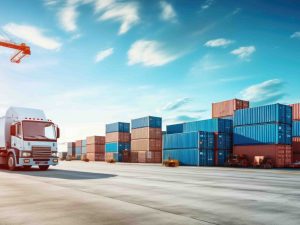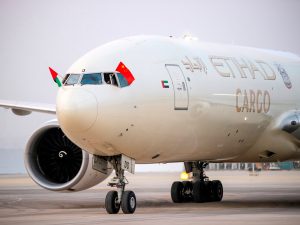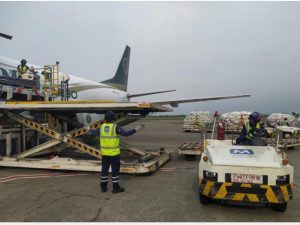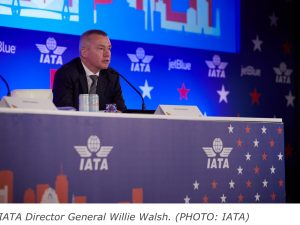Shree Cement has signed a memorandum of understanding with RITES Ltd, a Navratna enterprise under the Ministry of Railways, to enhance its rail infrastructure network. The collaboration aims to improve the efficient and sustainable transportation of raw materials and finished goods across Shree Cement’s manufacturing units. The agreement is effective for five years and can be extended with mutual consent. RITES will provide services from concept to commissioning for upgradation, renovation, and new rail connectivity for transportation of raw materials and cement. The company will also secure approvals from the Ministry of Railways for civil, signal, telecom, overhead electrification, and mechanical engineering components. RITES will support Shree Cement in contractor selection by evaluating and certifying agency eligibility during the tendering process.
Read More »Ekart joins ONDC Network to enhance logistics infrastructure
Ekart has officially joined the ONDC Network to enhance the logistics infrastructure available to sellers and brands operating within the Open Network for Digital Commerce (ONDC), a government-backed initiative to standardise digital commerce in India. The integration of Ekart brings its pan-India logistics capabilities to the ONDC platform, giving sellers—from MSMEs to large enterprises—direct access to scalable logistics services. With this addition, the ONDC Network expands its logistics offering, supporting its broader objective of rapidly developing an open and inclusive e-commerce ecosystem.
Read More »KSIE plans to build logistics hub at Balaramapuram
Kerala State Industrial Enterprises (KSIE), a state govt undertaking has submitted a proposal to industries department for building an integrated logistics hub at Balaramapuram. The initiative aligns with development plans associated with Vizhinjam International Seaport, said official reports. KSIE identified a land parcel of around 10-15 acres at Kattachalkuzhi, currently under the possession of Coconut Research Institute of Kerala Agricultural University. As the land belongs to the university, its consent is required before taking any further steps. Govt’s decision on it is expected soon, the online reports stated.
Read More »Etihad, SF Airlines join forces to boost connectivity, capacity
Etihad Airways and SF Airlines have signed a Joint Business Agreement (JBA) to enhance their cargo operations, expand network capacity and offer customers greater flexibility and service options. The agreement was signed today by Antonoaldo Neves, Chief Executive Officer, Etihad Airways and Li Sheng, Vice President of SF Group and Chairman of SF Airlines. Through the agreement, Etihad Airways and SF Airlines will collaborate on a metal-neutral basis to jointly market and integrate their airfreight services. The partnership is designed to foster incremental growth and create a seamless, shared network that offers customers an expanded range of destinations, increased cargo capacity and enhanced service efficiency. As part of the JBA, Etihad Airways and SF Airlines will enhance customer choice by expanding network connectivity and capacity across key trade lanes. Both carriers will also invest in improving service quality and operational efficiency, ensuring a consistently elevated customer experience. The partnership enables coordinated pricing strategies and alignment of service standards, delivering a streamlined and competitive offering. Additionally, the collaboration will support the strategic allocation of routes, sales efforts and client portfolios, allowing for joint decision-making and driving operational synergies. With the growth of cross-border e-commerce, time-sensitive shipments and specialised logistics services, the partnership between Etihad Airways and SF Airlines will offer greater flexibility and tailored solutions to meet evolving customer needs. The joint business will focus on key cargo product verticals, including Etihad Cargo’s SecureTech and PharmaLife solutions, which support the movement of high-value electronics, sensitive equipment and temperature-controlled pharmaceutical goods. Antonoaldo Neves, Chief Executive Officer, Etihad Airways, said: “This business agreement marks an important step in Etihad’s strategy to strengthen global connectivity and deliver greater value to our customers. By working …
Read More »AFKLMP Cargo launches AI-tool to enhance digital efficiency
Air France KLM Martinair Cargo (AFKLMP Cargo) is to offer a more personalised and responsive service for its customers with the launch of CRM360, a global artificial intelligence (AI)-powered platform codeveloped with customer relationship management (CRM) software company Salesforce. This next-generation solution is designed to ensure “consistent, efficient and customised support” throughout a customer experience, the Franco-Dutch cargo carrier said. AFKLMP Cargo is investing in various AI-enabled tools – such as chat, voice and priority models – to provide customer service teams with what it described as “cutting-edge tools, insight and expertise”.
Read More »Emirates SkyCargo set to add new destinations
Emirates SkyCargo is planning to add new connections between European destinations and the Middle and Far East. It plans to add two further weekly charter freighter services between Milan, Italy, and Southeast China, via Dubai, from the third quarter of this year. It expects fashion goods and pharmaceuticals, as well as general cargo, to be carried on the freighters. Elsewhere, the current weekly freighter service connecting Dubai World Central (DWC) airport, Maastricht Aachen Airport in the Netherlands and Zaragoza Airport in Spain will now also stop in Beirut, Lebanon, before its return to Dubai. General cargo and pharmaceuticals are expected to make up much of the airfreight flown into Beirut on the service out of Maastricht Aachen, while Zaragoza handles significant volumes of fashion goods and apparel, which can now be flown directly to Beirut.
Read More »Menzies Aviation set to acquire Spirit Cargo Handling
Menzies Aviation is all set to acquire Spirit Cargo Handling, an airfreight handler owned by SAS Ground Handling Norway. The acquisition represents the company’s first air cargo operation and warehouse in Norway and will boost Menzies’ overall cargo handling capacity by 150,000 tonnes a year. Much of the cargo handled by Spirit consists of high-demand products like salmon, as well as general cargo, and the work includes handling freighter services. As part of the deal, Menzies will resume responsibility for the Spirit cargo warehouse at Oslo Gardermoen Airport, and for handling existing freighter operations at the airport. Once the deal is completed, Spirit cargo operations will be rebranded as Menzies Aviation.
Read More »India on track to achieve 10MMT milestone by 2030: PM
Today, 3.5 million metric tons of goods are transported by air cargo in India. By the end of this decade, this number will reach 10 million metric tons,” said PM Narendra Modi while addressing the gathering at ongoing IATA’s Annual General Meeting in New Delhi. “These are not just numbers. This is a glimpse of India’s new potential. India is working on a futuristic roadmap to maximize its potential. We are investing in a world-class airport infrastructure. As Mr. Naidu said, by 2014, India had 74 operational airports. Today, this number has increased to 162. Indian carriers have ordered more than 2,000 new aircraft. And this is just the beginning. India’s aviation sector is at a take-off point. It has to make the longest and highest flight. And this flight will not only cross global borders, but will also take the world in the direction of sustainability, green mobility, and equitable access. Friends, the handling capacity of our airports has reached 500 million passengers every year. India is one of the few countries in the world that is setting new standards for user experience through technology. We are focusing on safety, efficiency, and sustainability. We are moving towards sustainable aviation fuels. We are investing in green technologies. We are reducing carbon footprint. We are ensuring the security of progress and the planet.”
Read More »Etihad Cargo unveils SmartTrack to boost efficiency
Etihad Cargo has launched SmartTrack, a game-changing premium service that gives customers real-time access to shipment location and condition data, raising the bar for transparency in global air freight. Unveiled at Air Cargo Europe 2025 in Munich, SmartTrack positions Etihad Cargo as the first carrier globally to implement this type of advanced smart tracking solution. Developed in partnership with Tag-N-Trac, SmartTrack leverages cutting-edge smart label technology to deliver comprehensive end-to-end shipment monitoring. The label is equipped with cellular, GPS, Bluetooth and Wi-Fi connectivity, capturing real-time data on exact location, temperature and humidity, shock, tilt and light exposure. This makes SmartTrack the ideal solution for mission-critical and condition-sensitive cargo, including pharmaceuticals, electronics and high-value goods. SmartTrack is designed with a focus on both efficiency and sustainability. The smart label, which can remain active for up to 30 days, features minimal packaging and eliminates the need for return logistics.
Read More »‘ONE Record will foster cargo efficiency & drive growth: IATA
Willie Walsh, IATA’s Director General, while speaking at the ongoing IATA AGM in New Delhi said, “On the air cargo side, the focus is ONE Record. For too long, aircraft have flown faster than the documentation that accompanies shipments—held back by fragmented systems, outdated processes, and limited data visibility. The current system won’t meet anyone’s expectations as customs requirements evolve and e-commerce volumes surge. The ONE Record global data-sharing standard will be the single accurate and real time source of truth for the entire value chain that built it together. The global rollout starts in January 2026, but to gain the full benefits we’ll be counting on two things: The industry stakeholders who built ONE Record to use it, and Governments to accept ONE Record data in their facilitation processes In a time of growing trade complexity, industry alignment and regulatory support is more critical than ever. Better compliance, cost savings and faster processing are substantial incentives for everyone to make ONE Record work. ”
Read More » Cargo Breaking News
Cargo Breaking News









